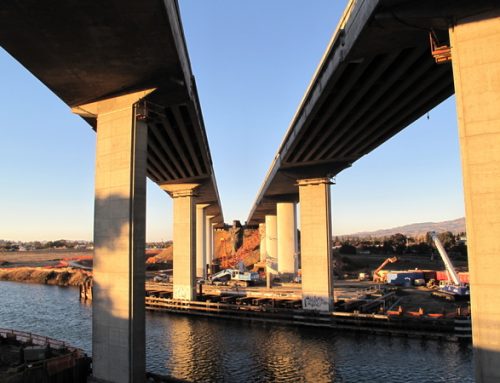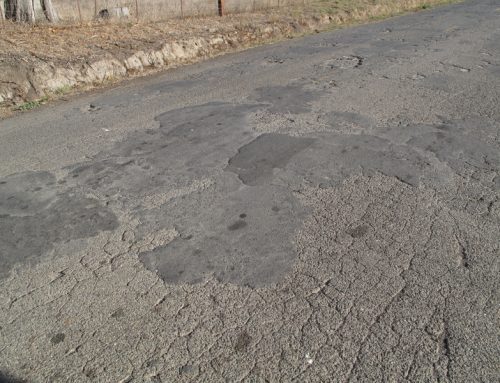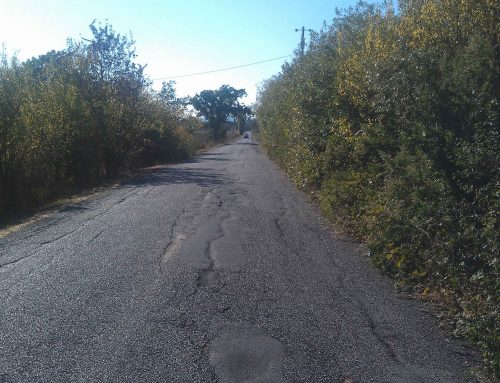Sonoma County isn’t the only place where roads are falling apart due to lack of funding. Find out how Texas is responding to the problem, then take a look at new highway stats from the U.S. Department of Transportation. Guess whose highways are the nation’s busiest? Finally, read about the new law that protects you from tickets at broken parking meters.
Unpaving roads in Texas
The Texas Tribune reports that approximately 83 miles of heavily damaged asphalt roads in South and West Texas will be converted to gravel, with speed limits reduced to 30 mph.Writer Ian Floyd reports that Texas Department of Transportation officials cited a funding shortfall and the impact of a historic oil drilling boom when they announced their plans on July 25. Work is scheduled to begin Monday.
“We would do these immediately, and I would suspect we would continue to convert other roadway segments as we continue to move forward,” TxDOT Deputy Executive Director John Barton told the Texas Transportation Commission.
All of the affected roads have been so heavily damaged by truck activity related to oil and natural gas exploration that they have become safety hazards, Barton said. The process of converting the roads to gravel can be done quickly but will probably be delayed a few weeks as TxDOT gets permission from the commissioners to lower the speed limits on all of the impacted segments, Barton said.
Commissioner Fred Underwood wanted to make sure the public understood the reasoning behind the decisions.
“This is a safety issue,” Underwood said. “It’s not ‘our roads are bad and we’re not going to keep them up.’ It’s ‘our roads are bad and we’re trying to protect the driving public.’”
Read the full story HERE, and thank Craig Harrison of SOS for bringing it to our attention.
California highways are the nation’s busiest
Meanwhile, the U.S. Department of Transportation’s Federal Highway Administration released a report that names California’s highways as the nation’s busiest, with people driving more than 84.7 billion miles on them in 2011 – more than 900 times the distance from Earth to the Sun.
“Over the past four years, DOT has improved more than 331,000 miles of roads with federal funds, but we know there’s a lot of work that still needs to be done,” said U.S. Transportation Secretary Anthony Foxx. “Information like this, along with new construction and design technologies, help us stretch our dollars further, making a bigger difference for even more people.”
Traffic volume data from 2011, the most recent year available, show that California’s I-5 was the nation’s busiest interstate, with neighboring I-10 and I-110 second and third busiest. Los Angeles’ section of I-405 was the busiest interstate in any American city.
America’s 10 Busiest States (by interstate vehicle-miles traveled) in 2011
| California | 84.681 billion |
| Texas | 55.734 billion |
| Florida | 34.689 billion |
| Ohio | 31.389 billion |
| Illinois | 31.033 billion |
| Georgia | 28.467 billion |
| Virginia | 24.062 billion |
| Pennsylvania | 23.662 billion |
| North Carolina | 21.241 billion |
| Michigan | 20.707 billion |
See the full report at fhwa.dot.gov/interstatebrief2011.
Broken parking meter? No worries
Motorists who park at broken parking meters are now protected against tickets, thanks to a bill introduced by Assemblyman Mike Gatto. Governor Brown signed the bill Aug. 12. It will go into effect Jan. 1, 2014, but should have little impact on Santa Rosans.
Gatto’s legislation targeted cities that allowed ticketing at broken meters, allowing motorists to park in them for the maximum time allowed by the meter.
“Santa Rosa’s Parking Enforcement Officers do not issue tickets for motorists parking at nonfunctional parking meters,” said Kim Nadeau, parking programs coordinator.
“Our multi-space meters accept both coin and credit card payment. If one of the payment functions is inoperable, we do expect the parker to pay using the operable function, or walk to the next closest machine to use the payment method of their preference. For example, if the machine was not accepting credit card payments, we would ask the parker to pay using coin, or walk to the nearest machine and pay by credit card there.
“Our maintenance staff responds to reports of broken meters promptly and typically repairs the equipment within 15-30 minutes of the report.”
————–
Follow the Road Warrior on Twitter at @PDRoadWarriorl
————-



